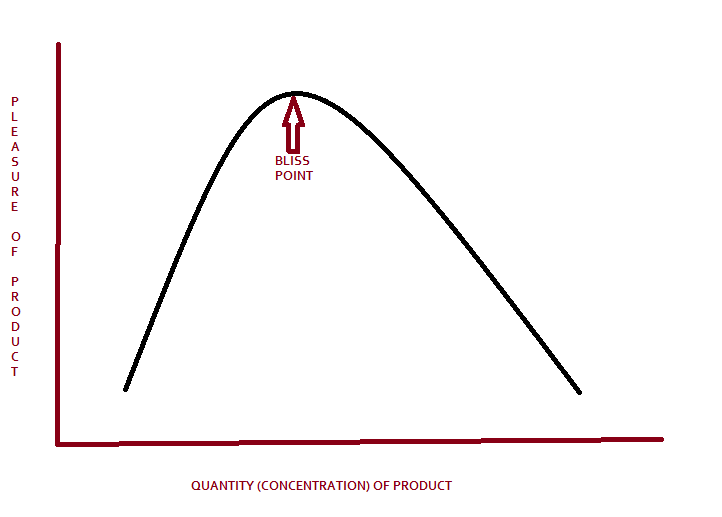As far back as the post-World War II years, food researchers have experimented with what is now called the "bliss point." Stated simply, the bliss point is that point where a consumer is most happy with a product. In the food industry, it is the point at which a particular food item is most desirable in terms of taste—assuming cost is not an issue. For an insightful, fascinating, if trouble article on the concept of the bliss point and its relationship to junk food, see the New York Times article by Michael Moss entitled, "The Extraordinary Science of Addictive Junk Food."
The consequence of mountains of data accumulated in the study of the bliss point of a wide variety of foods is that the food industry has learned how much salt, sugar, and fat in combination with each other to inject into foods to make them attractive to consumers. Look no further for a primary cause of the obesity epidemic sweeping the nation. We're human. We like salt, sugar, and fat. So we eat foods that optimize these ingredients, the key word being "optimize". Too much of them in a given food is as undesirable as too little.
I suspect that we could very easily apply the concept of the bliss point (which turns out to be a range rather an a single point) to Christian worship. A key pillar of the megachurch movement is the lively, upbeat tempo of megachurch worship, which often is conducted by virtually professional musicians, choreographers, and planners. People are less and less willing to go to worship just because it is worship. They seek stimulation. They want a certain level of entertainment, although we never use the word with worship. They want a return on their investment in time and effort. Most churchgoers these days consume worship, and if that truly is the case then the concept of a liturgical bliss point is one worth considering.
On the one hand, apply the concept of a bliss point to worship sounds theologically crude, wrong somehow. Worship should not be about entertainment. Seeking to discover its "bliss point" feels sacrilegious, irreverent, or whatever other word we might apply. On the other hand, if we are going to reach audiences in a consumer oriented capitalist culture we had better consider what it is that attracts them. The answer in the food industry is, "Bliss attracts them." What then about worship? Is bliss also what worshippers are seeking on a Sunday morning? It seems very likely that the answer is, "Yes."
